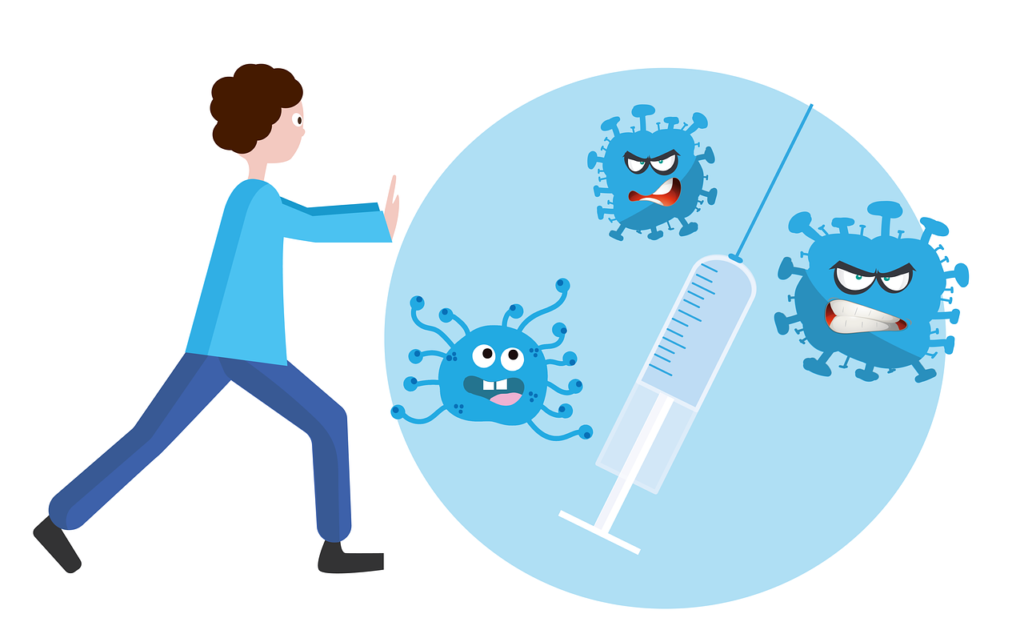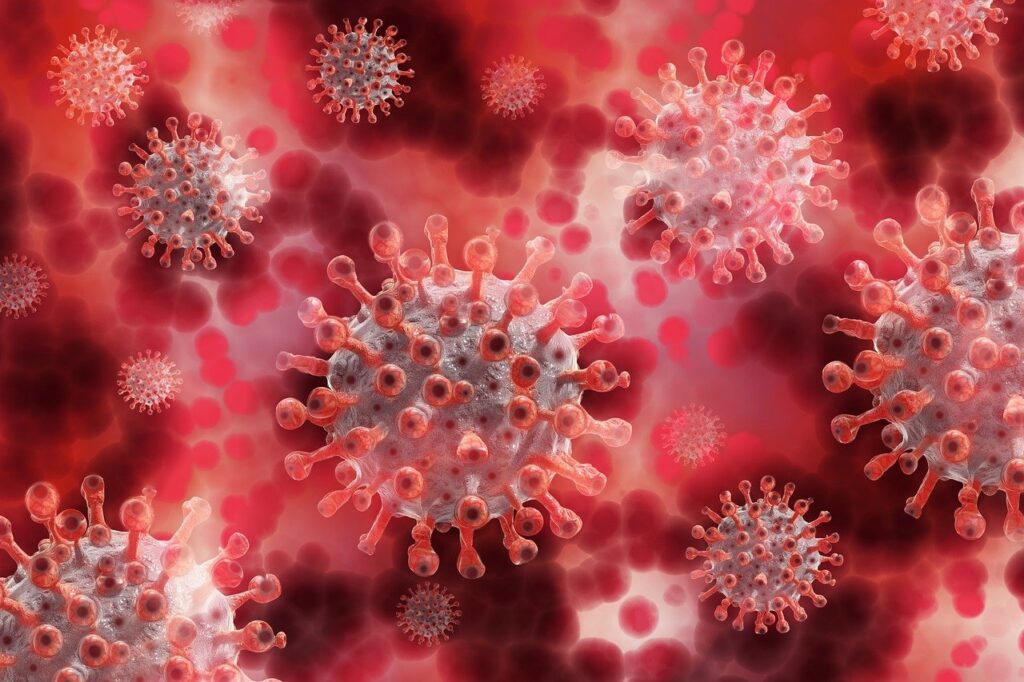
Introduction to Monkeypox and its Vaccine
Welcome to our blog, where we dive deep into the world of healthcare and vaccines! Today, we are exploring an intriguing topic that has been making headlines recently: monkeypox and its vaccine. Monkeypox is a rare but potentially serious viral disease that can cause fever, rash, and even death in some cases. Thankfully, scientists have developed a vaccine to protect against this infection. However, just like any other medical intervention, the monkeypox vaccine comes with its own set of side effects – both common and rare. So let’s get ready to uncover the truth behind these side effects and debunk any myths surrounding this important vaccination!
History of the Monkeypox Vaccine side effects

History of the Monkeypox Vaccine
Monkeypox is a rare viral disease that was first discovered in 1958 when outbreaks occurred among monkeys kept for research purposes. The virus can be transmitted to humans through direct contact with infected animals or through respiratory droplets.
In response to the threat posed by monkeypox, scientists began researching and developing a vaccine. The first monkeypox vaccinehttps://www.ncbi.nlm.nih.gov/pmc/articles/PMC10389550/ was developed in the 1970s using an attenuated strain of the virus. This means that the live virus used in the vaccine has been weakened so that it does not cause severe illness but still stimulates an immune response.
Over time, the development and improvement of monkeypox vaccines have led to safer and more effective options. Today, there are several different types of vaccines available for preventing monkeypox infection.
The use of these vaccines has contributed significantly to controlling outbreaks and reducing the number of cases worldwide. Vaccination campaigns targeting high-risk populations, such as healthcare workers and individuals living in areas where monkeypox is endemic, have proven successful in preventing new infections.
Ongoing research continues to refine existing vaccines and explore new approaches for preventing monkeypox transmission. The commitment to developing effective preventive measures demonstrates our dedication to public health and ensuring global well-being.
As we move forward, it remains crucial to stay informed about vaccination recommendations from trusted healthcare authorities and organizations. By staying proactive in our efforts against infectious diseases like monkeypox, we can continue safeguarding ourselves and future generations from their potentially devastating effects on public health.
Common Side Effects of the Monkeypox Vaccine

Common Side Effects of the Monkeypox Vaccine
When it comes to vaccines, it’s important to understand that Monkeypox Vaccine Side Effects can occur. The monkeypox vaccine is no exception. However, it’s crucial to note that most side effects are mild and temporary, lasting only a few days.
One common side effect of the monkeypox vaccine is pain or tenderness at the injection site. This is completely normal and should subside on its own within a short period of time. Some individuals may also experience redness or swelling around the injection site, which is also expected.
In addition to local reactions, some people may develop flu-like symptoms after receiving the Monkeypox Vaccine Side Effects. These can include fever, headache, muscle aches, and fatigue. While these symptoms may be uncomfortable for a short while, they typically resolve without any complications.
It’s worth mentioning that experiencing these common Monkeypox Vaccine Side Effects does not mean you have contracted monkeypox itself. It simply shows that your immune system is responding appropriately to the vaccine by producing an immune response.
If you do experience any discomfort from these common Monkeypox Vaccine Side Effects after getting vaccinated against monkeypox, there are simple measures you can take to manage them effectively. Applying a cold compress or taking over-the-counter pain relievers like acetaminophen or ibuprofen can alleviate any pain or discomfort you might feel at the injection site.
Remember that every individual responds differently to vaccines based on their unique biology and medical history. If you have concerns about potential side effects from the monkeypox vaccine or if your symptoms persist for an extended period of time beyond what would be considered normal in this context (typically 1-2 days), consult with your healthcare provider for further evaluation and guidance.
In conclusion,
Now we’ve covered some of the common Monkeypox Vaccine Side Effects associated with the monkeypox vaccine – including local reactions such as pain at the injection site and flu-like symptoms which usually resolve within a few days. These side effects are typically mild and temporary, serving as indicators
Rare but Serious Side Effects

Rare but Serious Side Effects
While the vast majority of people who receive the monkeypox vaccine experience only mild side effects, it is essential to be aware that there are potential rare but serious side effects associated with this vaccine. These serious side effects are extremely uncommon, but it’s crucial to understand and recognize them.
One possible serious side effect of the Monkeypox Vaccine Side Effects is an allergic reaction. Although rare, some individuals may have a severe allergic response to one or more components of the vaccine. Signs of an allergic reaction can include hives, difficulty breathing, swelling of the face or throat, and rapid heartbeat. If you or someone you know experiences these symptoms after receiving the monkeypox vaccine, seek immediate medical attention.
Monkeypox Vaccine Side Effects rare but serious Monkeypox Vaccine Side Effects is Guillain-Barré syndrome (GBS). GBS is a neurological disorder where the body’s immune system mistakenly attacks its own nerves. While cases of GBS following vaccination are exceptionally rare, it’s important to be aware of its potential as a severe outcome.
Additionally, Monkeypox Vaccine Side Effects, some individuals may develop encephalitis after receiving the monkeypox vaccine. Encephalitis is inflammation in the brain that can lead to complications such as seizures and changes in behavior or consciousness levels.
It’s important to emphasize that while these serious Monkeypox Vaccine Side Effects exist, they occur at an extremely low rate compared to the benefits provided by vaccination against monkeypox. Vaccines undergo rigorous testing for safety before being approved for use by regulatory authorities.
If you have concerns about these rare but potentially serious Monkeypox Vaccine Side Effects associated with the monkeypox vaccine, discuss them with your healthcare provider so they can address any questions or worries you may have
Debunking Myths Surrounding the Vaccine
Debunking Myths Surrounding the Vaccine
There has been a lot of misinformation circulating about the Monkeypox Vaccine Side Effects causing confusion and reluctance among some individuals. It’s important to separate fact from fiction when it comes to vaccines in order to make informed decisions about our health.
One common myth is that the monkeypox vaccine can actually give you monkeypox itself. This is completely false. The vaccine contains a weakened form of the virus that cannot cause full-blown infection in humans. Its purpose is to stimulate an immune response so that your body can recognize and fight off the real virus if exposed.
Another myth suggests that getting vaccinated will weaken your immune system or make you more susceptible to other diseases. In reality, vaccines work by boosting your immune response, helping your body develop strong defenses against specific pathogens like monkeypox. They do not compromise overall immunity but rather enhance it.
Some people worry about potential long-term Monkeypox Vaccine Side Effects of vaccines, including fertility issues or chronic illnesses later in life. However, extensive research has shown no evidence supporting these claims for the monkeypox vaccine or any other well-established immunizations.
It’s also important to address concerns regarding vaccine safety and quality control. Vaccines go through rigorous testing and monitoring processes before they are approved for public use. Health authorities continuously track their safety profile and investigate any reported adverse events.
By debunking these myths surrounding the monkeypox vaccine, we can foster greater trust and confidence in vaccination programs as essential tools for preventing infectious diseases. It’s crucial to rely on accurate information from reputable sources such as healthcare professionals and scientific studies when making decisions about our health.
How to Manage and Prevent Side Effects
Managing and preventing Monkeypox Vaccine Side Effects is an important aspect of any vaccine, including the monkeypox vaccine. While most individuals experience only mild side effects, it’s essential to know how to handle them effectively.
One way to manage common Monkeypox Vaccine Side Effects is by using over-the-counter pain relievers such as ibuprofen or acetaminophen. These medications can help reduce fever, muscle aches, and soreness at the injection site. It’s crucial to follow the recommended dosage instructions provided by your healthcare provider.
Additionally, applying a cold compress or ice pack on the injection site can help alleviate swelling and discomfort. Remember not to apply ice directly onto the skin; always wrap it in a cloth or towel before use.
If you experience more severe symptoms that persist for an extended period or become increasingly bothersome, don’t hesitate to consult your healthcare provider. They can provide guidance tailored specifically to your situation and recommend appropriate treatment options if necessary.
Preventing side effects begins with proper communication with your healthcare provider prior to receiving the vaccine. Make sure they are aware of any pre-existing medical conditions or allergies you may have so they can determine if there are any potential contraindications.
Staying hydrated and getting enough rest also play a significant role in managing potential side effects. Taking care of yourself physically will bolster your immune system and enhance its response to the vaccine.
Remember that everyone’s body reacts differently, so what works for one person may not work for another when it comes to managing side effects. It’s essential always to listen to your body and seek medical advice when needed.
By being proactive about managing and preventing side effects from the monkeypox vaccine, you’re taking steps towards protecting yourself against this potentially serious disease while minimizing any temporary discomfort that may arise along the way
Conclusion: The Importance of Vaccines for Public Health
Conclusion: The Importance of Vaccines for Public Health
Ensuring public health is a collective responsibility that requires both individual and community efforts. Vaccinations play a crucial role in preventing the spread of infectious diseases and protecting vulnerable populations. The monkeypox vaccine, despite some potential side effects, has proven to be safe and effective in combating this viral disease.
While it is important to acknowledge the Monkeypox Vaccine Side Effects of the monkeypox vaccine, such as pain or swelling at the injection site or mild fever, these are generally short-lived and outweighed by the benefits of immunization. It is essential to remember that serious complications from receiving the vaccine are rare.
It’s important not to succumb to myths or misinformation surrounding vaccines. Scientific research and rigorous testing have consistently demonstrated their safety profile. By debunking misconceptions about vaccines, we can encourage more people to protect themselves against preventable diseases like monkeypox.
If you do experience any Monkeypox Vaccine Side Effects after receiving the monkeypox vaccine, there are simple steps you can take to manage them effectively. Over-the-counter pain relievers can help alleviate discomfort at the injection site or reduce fever if present. However, it is always advisable to consult with your healthcare provider if you have any concerns regarding possible side effects.
In conclusion (as per instructions), vaccinations remain one of our most powerful tools in safeguarding public health. The monkeypox vaccine plays a vital role in preventing outbreaks and protecting individuals from severe illness caused by this virus. By understanding and addressing potential Monkeypox Vaccine Side Effects while dispelling myths surrounding vaccines, we can ensure greater acceptance for immunizations within our communities – ultimately contributing towards healthier societies worldwide.